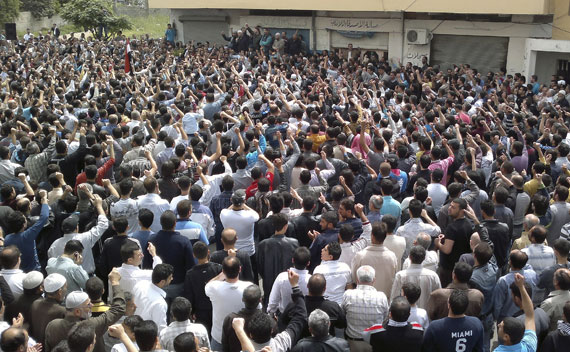Syria This Week
More on:

Amidst this week’s Middle East news one startling event has escaped the attention it deserves. According to news reports such as this one in the Wall Street Journal, an American diplomat in Damascus was detained and then “hooded by Syrian security agents and ‘roughed up’ before being released.”
This is a remarkable development. For one thing, it sums up as well as any anything could what the Obama Administration has gained from two years of buttering up the Assad regime, loosening sanctions, letting them into the World Trade Organization, sending an ambassador to Damascus, and making believe Assad is a reformer. It has gained us Assad’s contempt.
How did the United States react to this unprecedented, illegal action against the diplomatic immunity of our Embassy personnel? Why, we “formally one spaceprotested.” That means we called Syria’s despicable ambassador into the State Department and told him this was terrible and must not be repeated.
That is not a serious response. If I were an American diplomat in a trouble spot, I would be hoping for a lot more than that—for example, in these circumstances, for throwing the Syrian ambassador out of this country. Our own ambassador in Damascus should never have been sent, was sent over the objections of Congress as a recess appointment, and should be recalled immediately.
Today the administration announced some new sanctions on Syria, including on Assad’s brother Maher, but leaving Bashar al Assad’s name off the list. Why? According to Reuters “he could be named later if violence by government forces against pro-democracy protesters continues.” Put less gently, he appears not to have killed the threshold number of people yet, and if he kills more he’ll go on the list. He did kill more people today—dozens more. The toll is now over five hundred and climbing.
Today as well the UN Human Rights Council condemned Syria, a useful move in making it a pariah state. But I am more concerned about what the United States does in sanctioning the regime and in making it crystal clear that it may not use violence against American diplomats. More than a “formal protest” is needed.
More on:
 Online Store
Online Store
